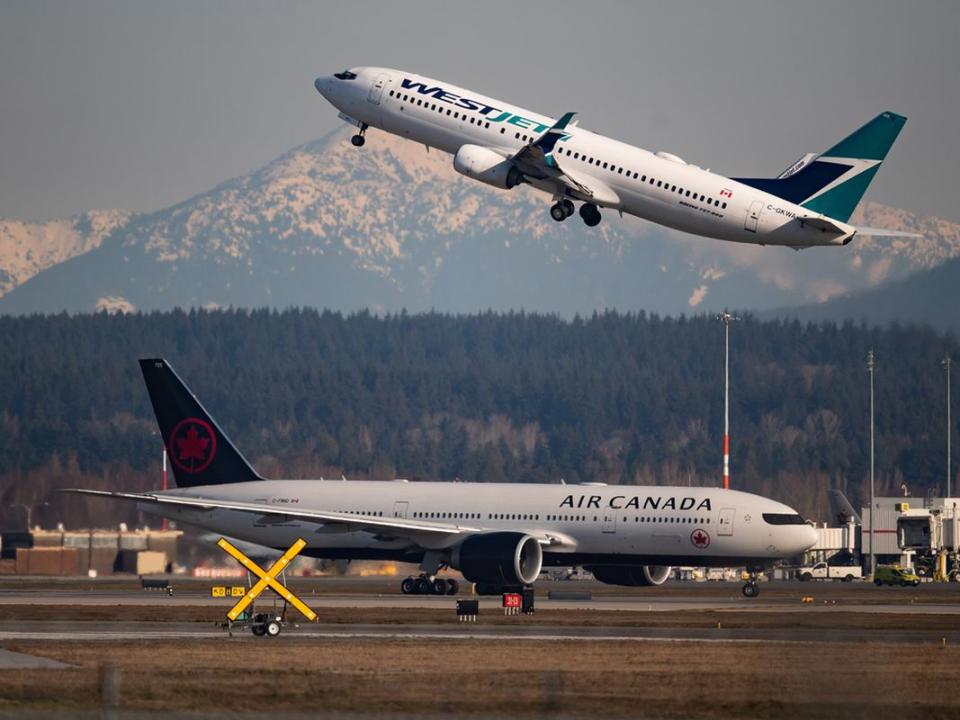Matthew Lau: The Competition Bureau should leave airlines alone

Last week the Competition Bureau announced it is undertaking a market study of Canada’s airline sector. Though Canadians would welcome greater airline competition they should not be optimistic about the result of this bureaucratic initiative, which is certain to be even more government meddling. In the past, including in its report last October on the evolution of competition in Canada from 2000 to 2020, the Competition Bureau has demonstrated its fundamental misunderstanding of competition and has repeatedly underlined its mistaken belief that government planning and regulation can bring it about. But government dictating who must compete and how is not real competition at all — just a variant of central planning.
Speaking to the Parliamentary Committee on Transport, Infrastructure, and Communities, Melissa Fisher, a deputy commissioner with the Competition Bureau, pointed out that the bureau had opposed three recent proposed airline mergers: First Air and Canadian North in 2019, Air Canada and Air Transat in 2021 (which the two airlines themselves eventually called off) and WestJet and Sunwing Airlines, which was completed in 2023. To its credit, the federal government approved all three transactions despite the Bureau’s objections, although it imposed a plethora of political riders, including price controls, guidance on the geography of aircraft maintenance contracts, instructions to extend vacation package offerings, and mandates on where business offices should be located, by how much employment should increase and so on.
The Competition Bureau’s reports opposing proposed airline mergers have centred on its own predictions of what might happen to prices and services following each. But government planners can never have sufficient data or knowledge to centrally-plan an industry for the good of consumers; nor can they accurately foresee the future. Hoping for positive results by having government control an industry’s composition instead of the market also relies on government planners having only the good of society and not their own private interests at heart. In short, they need to be saints, if not angels. But none of these conditions necessary to successful central planning holds.
To cite just one example: when an entrepreneur innovates and raises capital to start a new company, his or her exit strategy is often to eventually sell the company to a larger competitor whose scale allows it to make better use of the innovation or the new service. Both the company’s founding and its sale create value for consumers. But blocking mergers based on bureaucrats’ possibly completely inaccurate predictions of what might happen to prices and services denies them this exit strategy, prevents them from maximizing their innovation’s value and so discourages many entrepreneurs from innovating in the first place. Where is that factored into bureaucratic decisions to block mergers and acquisitions? How would bureaucrats try to estimate this type of thing in the first place?
And are the bureaucrats who propose to organize our industries for us saints or even angels? No, like the rest of us, they are fallible humans. Just as private businesses want to improve their balance sheets, increase their revenues, expand their market shares and raise their profits, bureaucrats want to grow their bureaucracies and increase their power. Unfortunately, how they do that is through more bureaucratic meddling, whether justified or not. A Competition Bureau that does not constantly find new recommendations for how government should intervene in the economy is unlikely to have its budget increased. As a result, Competition Bureau analyses are not unbiased: they will always err on the side of more government intervention.
Bradley Callaghan, an associate deputy commissioner with the Competition Bureau, explained to the parliamentary committee last week that the purpose of an airlines market study is to provide a general perspective on competition in a sector, as opposed to studying a specific merger or action. The outcomes of such studies usually go to government in the form of policy recommendations. An example is the Competition Bureau’s latest market study — on the grocery industry — which resulted in recommendations to the federal and provincial governments to collaborate on a “Grocery Innovation Strategy,” give taxpayer grants or “incentives” for independent stores and regulate how stores display prices.
Unfortunately, just as government innovation strategies, corporate welfare and increased red tape won’t help grocery shoppers, we shouldn’t expect the Competition Bureau’s study of airline competition to benefit air passengers, either. Indeed, we should count ourselves lucky if the market study doesn’t lead to anything that makes taxpayers and air passengers materially poorer.
Financial Post
Matthew Lau is a Toronto writer.
Bookmark our website and support our journalism: Don’t miss the business news you need to know — add financialpost.com to your bookmarks and sign up for our newsletters here.

 Yahoo Finance
Yahoo Finance 